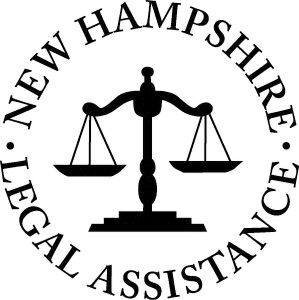Addressing Housing Affordability for Greater Access
Part of the NHLA Fair Housing Project’s mission is to advocate for changes in laws, ordinances, and policies that are having a negative impact on people who have historically faced barriers to housing because of discrimination. These individuals are often referred to as protected class members under the Fair Housing Act and state law. It is our goal to increase access to housing, and an important factor in housing access is housing affordability.
High Price of NH Homes
New Hampshire has seen a boom in the housing market in recent years, especially during the COVID-19 pandemic, which has driven up the costs of buying or renting a home. At the end of November 2021, the median single-family home price in New Hampshire was $400,000, according to the New Hampshire Association of Realtors. This is simply out of the price range of many residents, including those in the middle class.
Rents have been increasing in recent years, as well. According to the New Hampshire Housing Finance Authority’s 2020 Residential Rental Cost Survey Report, the median monthly rent for a two-bedroom apartment in New Hampshire was $1,413 in 2020, up 5% from the year before. Vacancy rates averaged 1.75% for two-bedroom units, making it difficult to find a rental for those who can afford it. Rents in the southern part of the state trend higher and have seen a rapid increase. For example, the median monthly cost of a two-bedroom unit in Rockingham County is $1,623, up 28% over the past five years.
Vacancy rates are already at record lows. They decline even further for more affordable apartments. Homeless advocates and public housing administrators report that people who have finally received a Section 8 or Housing Choice Voucher are experiencing increased difficulties finding landlords who will accept their vouchers. Many have been unsuccessful in placing the voucher and have lost it.
How This Relates to Fair Housing
Lack of affordable housing is an issue that disproportionately impacts minority group members, people with disabilities, and people of low income. Often, communities are structured in ways that create neighborhoods with little income diversity, referred to as income-based housing segregation. Children brought up in lower-income neighborhoods generally do not have equal access to the benefits that children living in more affluent communities experience. These disparities can have lifelong consequences.
If people are to have equal access to clean, safe housing, that includes access to affordable homes not just in predominantly low-income neighborhoods. It also means creating more income-diverse neighborhoods where amenities can be enjoyed by all.
One way to address this problem is to look at why housing is set up the way it is in many New Hampshire communities. Land use controls are an important factor. Zoning can create or discourage the development of economically diverse communities. When zoning calls for a minimum lot size to build a home and low density requirements, for example, these factors can inhibit the development of affordable housing. Limitations and restrictions on multifamily housing tend to deepen a community’s income-based housing segregation.
The Need for Affordable Housing
Housing advocates have been sounding the alarm about New Hampshire’s housing needs for many years, but the lack of available homes, increased prices, and a greater need for workers has brought the issue to the forefront.
Some policies already exist to help spur growth in affordable housing. In 2008, the Workforce Housing Law was enacted in New Hampshire, requiring workforce housing be allowed in most areas where residential homes are allowed. Some communities have embraced the push for affordable housing, but others are resistant or approve only housing for older adults. The long-held fear that building family homes will add children to the school system, and in turn increase property taxes, has resulted in a lack of housing for families, again driving up the cost of available family homes and rentals.
How NH Is Addressing Affordability
In an effort to increase workforce housing and ensure the state’s continued economic success, Gov. Chris Sununu created an affordable housing task force to examine the persistent problem. The task force’s report in October 2019 found two main barriers: local regulatory restrictions and lack of incentive to invest.
It recommended streamlining the regulatory process and creating incentives for towns to adopt housing-friendly ordinances. It also recommended increasing financial incentives for private investment in affordable housing.
In 2019, the legislature passed a law creating a state housing appeals board. Instead of going to superior court, the appeals board provides a faster, more affordable way to manage disputes involving local land use law and housing development. Also, in 2017, a law went into effect that requires municipalities to allow at least one attached accessory dwelling unit in zoning districts where single-family homes are allowed. This enables homeowners to use part of their existing home to create a separate rental unit.
Our Recommendations
One of the best ways to reduce income-based housing segregation and income inequality is to promote the creation of affordable housing opportunities in all municipalities. Much has been done to achieve this goal in recent years and New Hampshire is moving in the right direction. We recommend continued legislative and policy efforts to increase the availability and development of affordable housing and create more income-diverse neighborhoods. We also see the need for better public messaging, helping communities better understand what affordable housing truly means and how it can benefit everyone.
For more information about fair housing and NHLA’s Fair Housing Project, go to our website or call us at 1-800-921-1115.

